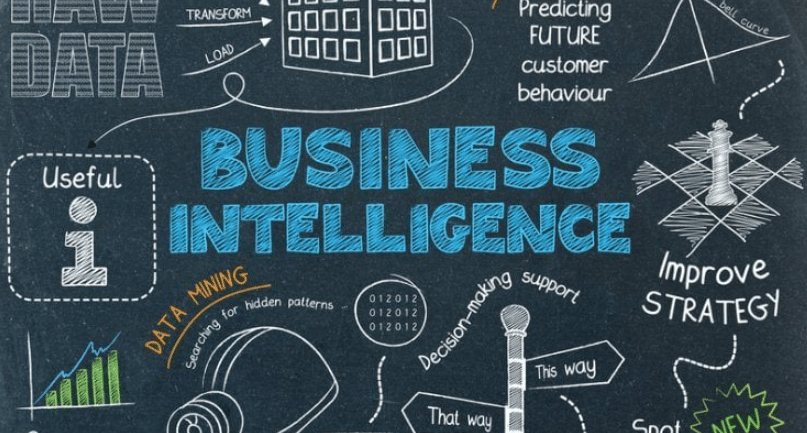Business intelligence (BI) technologies refer to a set of tools, software, and technologies that facilitate the collection, analysis, and presentation of data to support decision-making and improve business performance. These technologies encompass a wide range of functionalities and components designed to extract insights from data and provide meaningful information to stakeholders.
What are the Business Intelligence Technologies?

Some common components and technologies within the realm of business intelligence include:
Data Warehousing
Data warehousing involves the process of consolidating and organizing data from various sources into a centralized repository, often referred to as a data warehouse. This technology enables efficient data storage and retrieval for analysis.
Extract, Transform, Load (ETL) Tools
ETL tools assist in extracting data from different sources, transforming it into a consistent format, and loading it into a target system, such as a data warehouse or BI platform. These tools ensure data quality, consistency, and integration across disparate sources.
Online Analytical Processing (OLAP)
OLAP technologies enable users to perform multidimensional analysis of data, allowing them to navigate and explore information from different perspectives. OLAP provides interactive and flexible ways to analyze data across dimensions such as time, geography, and product categories.
Data Visualization Tools
Data visualization tools help transform complex data into visual representations such as charts, graphs, and maps. These tools enable users to comprehend and interpret data more easily, facilitating faster and more informed decision-making.
Reporting and Dashboards
Reporting tools allow users to create structured reports and documents that summarize key business metrics and performance indicators. Dashboards provide a consolidated view of data through visualizations and interactive elements, allowing users to monitor and analyze real-time data.
Predictive Analytics
Predictive analytics technologies leverage statistical models, machine learning algorithms, and historical data to forecast future outcomes and trends. These tools help organizations make data-driven predictions and optimize decision-making processes.
Data Mining
Data mining technologies utilize algorithms and statistical techniques to uncover patterns, relationships, and insights from large datasets. They help identify hidden correlations and anomalies in the data, supporting decision-making and strategic planning.
Natural Language Processing (NLP)
NLP technologies enable machines to understand and analyze human language. They facilitate the extraction of information from unstructured data sources such as text documents, social media posts, and customer reviews.
Cloud-Based BI Platforms
Cloud-based BI platforms provide access to BI functionalities and services over the internet. These platforms offer scalability, flexibility, and cost-effectiveness, as they eliminate the need for extensive on-premises infrastructure and allow for easy collaboration and data sharing.
Mobile BI
Mobile BI technologies enable users to access and interact with BI reports, dashboards, and analytics on mobile devices such as smartphones and tablets. This capability allows decision-makers to access real-time data and make informed decisions while on the move.
These technologies collectively empower organizations to transform raw data into actionable insights, facilitate data-driven decision-making, and gain a competitive edge in today’s data-driven business landscape.
What is Business Technology Examples?

Business technology refers to the use of various tools, software, and technologies to support and enhance business operations and processes. Here are some examples of business technology commonly used in organizations:
Customer Relationship Management (CRM) Systems
CRM systems help manage customer interactions, track sales leads, and automate marketing campaigns. They enable businesses to improve customer relationships, streamline sales processes, and enhance customer satisfaction.
Enterprise Resource Planning (ERP) Systems
ERP systems integrate and manage core business processes, such as finance, supply chain, human resources, and inventory management. They provide a centralized platform for data management, collaboration, and decision-making across different departments.
Collaboration Tools
Collaboration tools, such as project management software, instant messaging platforms, and video conferencing solutions, facilitate teamwork, communication, and information sharing among employees, even in remote or distributed work environments.
Business Intelligence (BI) Tools
BI tools enable organizations to gather, analyze, and visualize data to derive insights and make informed decisions. These tools provide capabilities for data exploration, reporting, dashboards, and advanced analytics to support strategic planning and operational improvements.
Cloud Computing Services
Cloud computing allows businesses to access and store data, applications, and resources over the internet. Cloud-based services, such as Infrastructure as a Service (IaaS), Platform as a Service (PaaS), and Software as a Service (SaaS), offer flexibility, scalability, and cost-effectiveness.
Enterprise Content Management (ECM) Systems: ECM systems help organizations manage and store digital content, such as documents, records, and multimedia files. They facilitate document collaboration, version control, and secure information sharing across the organization.
E-commerce Platforms
E-commerce platforms enable businesses to sell products and services online, manage inventory, process payments, and provide a seamless shopping experience for customers. These platforms support online transactions and help businesses expand their reach and increase sales.
Robotic Process Automation (RPA)
RPA technologies automate repetitive and rule-based tasks by using software robots or bots. They help streamline business processes, improve efficiency, and reduce human errors.
Internet of Things (IoT) Device
IoT devices connect physical objects to the internet, allowing them to collect and exchange data. Businesses utilize IoT devices in various sectors, such as manufacturing, logistics, and retail, to improve operational efficiency, monitor assets, and enhance customer experiences.
Artificial Intelligence (AI) and Machine Learning (ML)
AI and ML technologies enable machines to simulate human intelligence, learn from data, and perform tasks autonomously. They have applications in areas like virtual assistants, chatbots, predictive analytics, and fraud detection.
These examples represent a broad range of business technologies that organizations adopt to streamline processes, improve productivity, enhance customer experiences, and gain a competitive edge in the digital era.
Read More : Best Business Intelligence Tools (BI Tools)